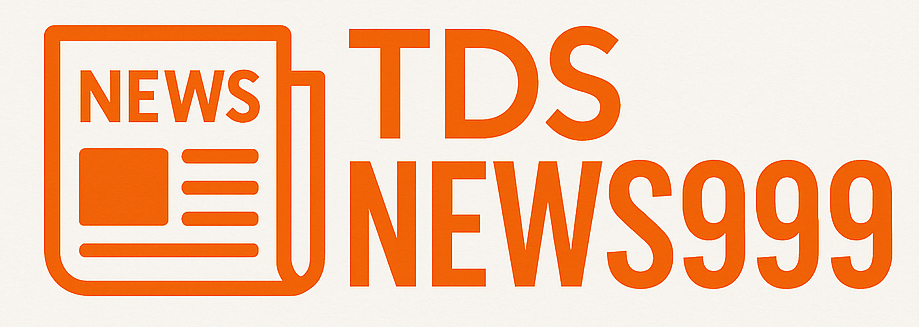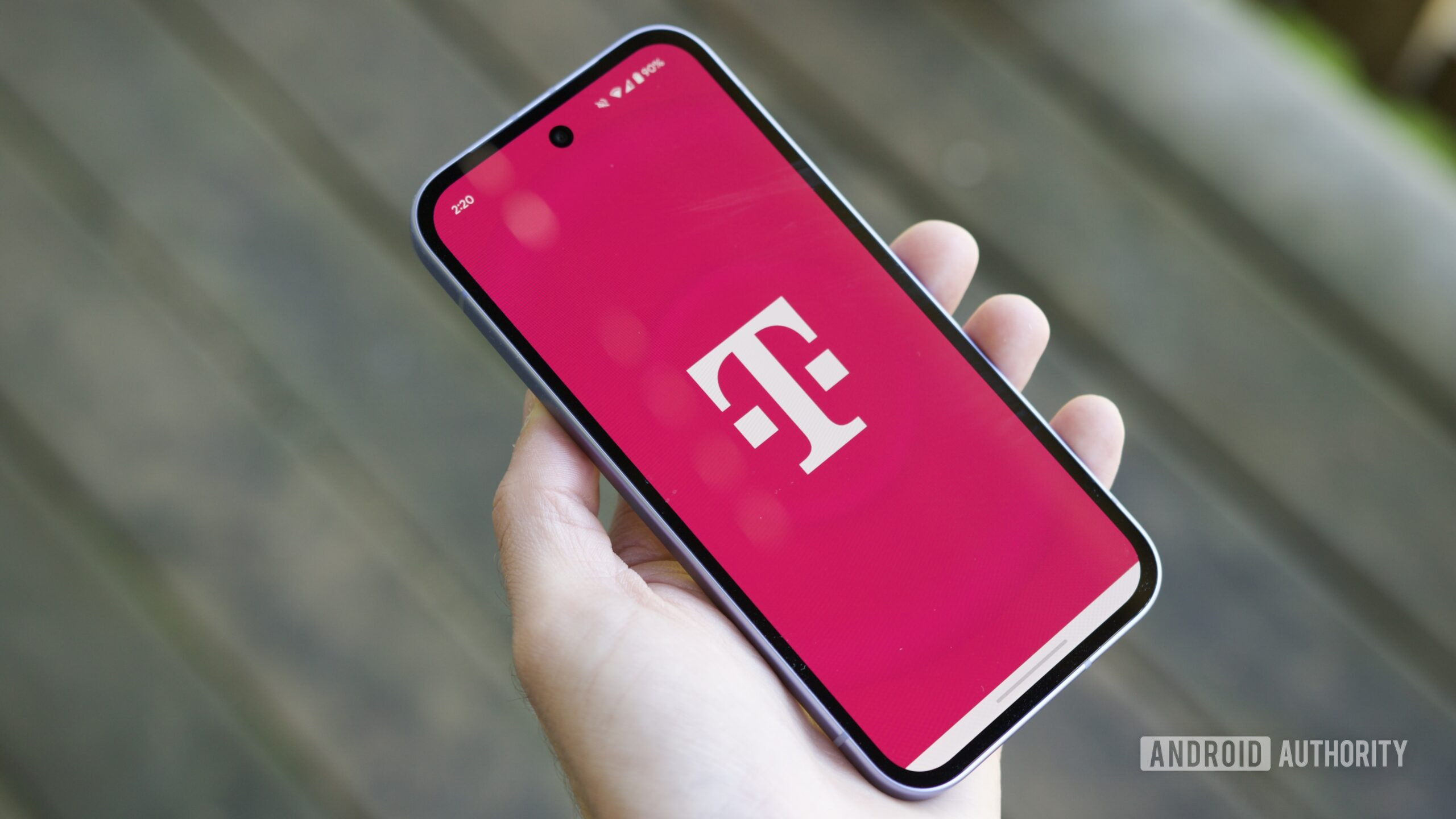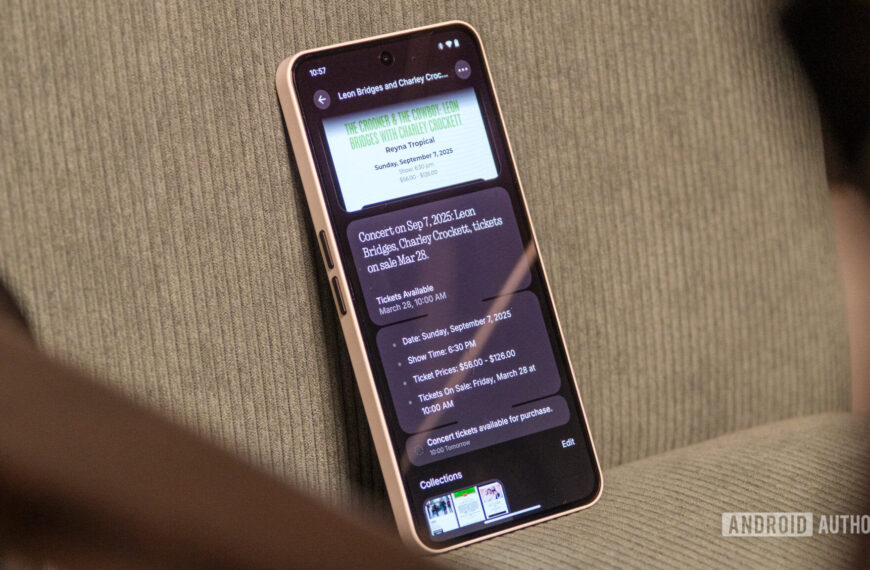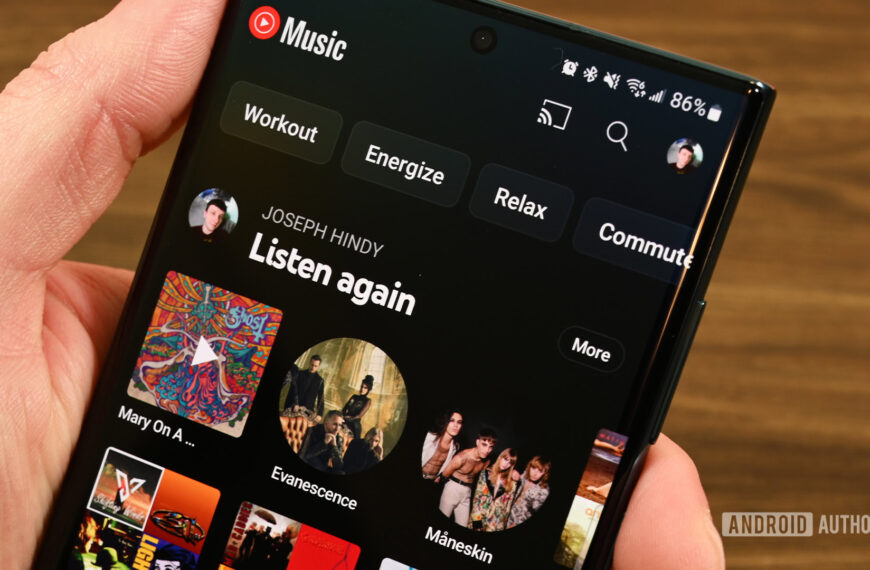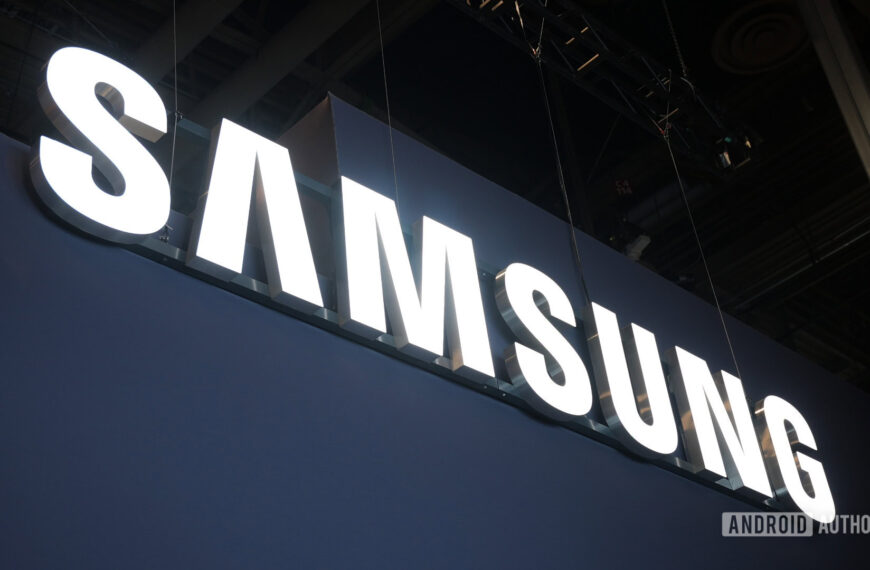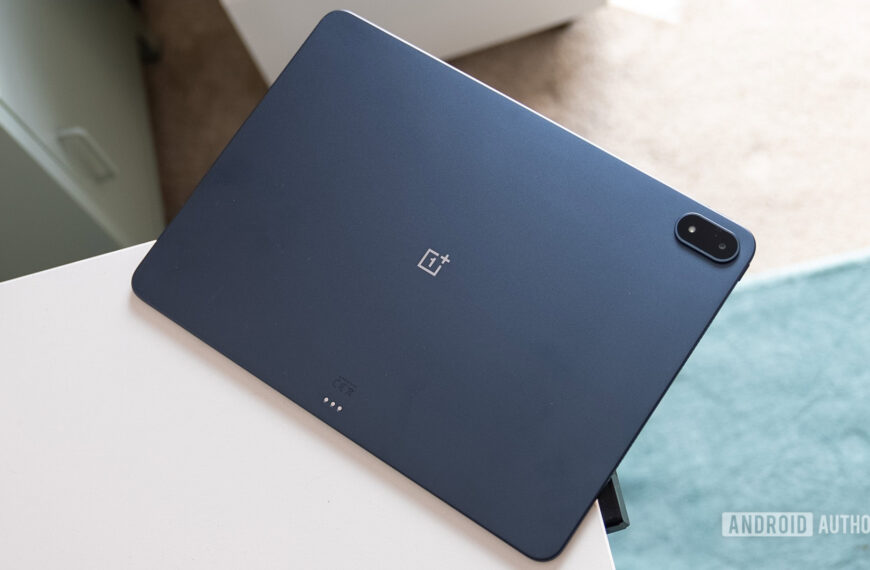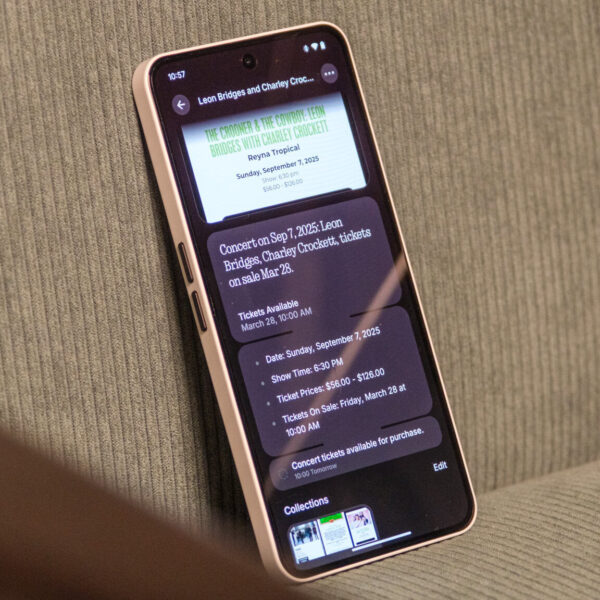
Joe Maring / Android Authority
TL;DR
- T‑Mobile is shaking up its prepaid offerings with three plans, ranging from $40 to $60 per month for one line.
- The new plans largely look like an upgrade, but there are a few possible catches around prioritization and family discounts.
- The new plans look similar to what you’ll find from other prepaid plans based on T-Mobile’s network, though whether they are better or not remains unseen until we know a bit more.
Earlier this year, T-Mobile unveiled its new Experience plans, which largely felt like a step in the wrong direction for its postpaid service. Now, T-Mobile is back with a shakeup to its prepaid plans, and this time, the new offerings might actually be an improvement. Unfortunately, “might” is the operative word here.
What do you think of the new T-Mobile prepaid plans?
0 votes
There are a few red flags here, but before I get to that, let’s start by breaking down the new plans that will go into effect on June 24:
- Starter Monthly: Priced at the same $40 as the former 10GB plan, this option now provides an upgraded 15GB of data.
- Unlimited Monthly: For only $40 per month, customers receive unlimited talk, text, and 50GB of high-speed data, alongside unlimited 3G hotspot access — around $10 cheaper than the previous base unlimited plan.
- Unlimited Plus Monthly: Includes everything from the Unlimited Monthly plan, plus 5GB of high-speed hotspot access (unlimited 3G afterward), unlimited texting to 215 countries from within the US, and unlimited talk and text roaming in Canada and Mexico.
As you can see, the revised plans aren’t dramatically different from their predecessors, aside from some incremental improvements. Taxes and fees are separate, but that’s consistent with the previous prepaid plans. Notably, the new plans seem slightly cheaper or at least offer enhanced features compared to the options they’re replacing.
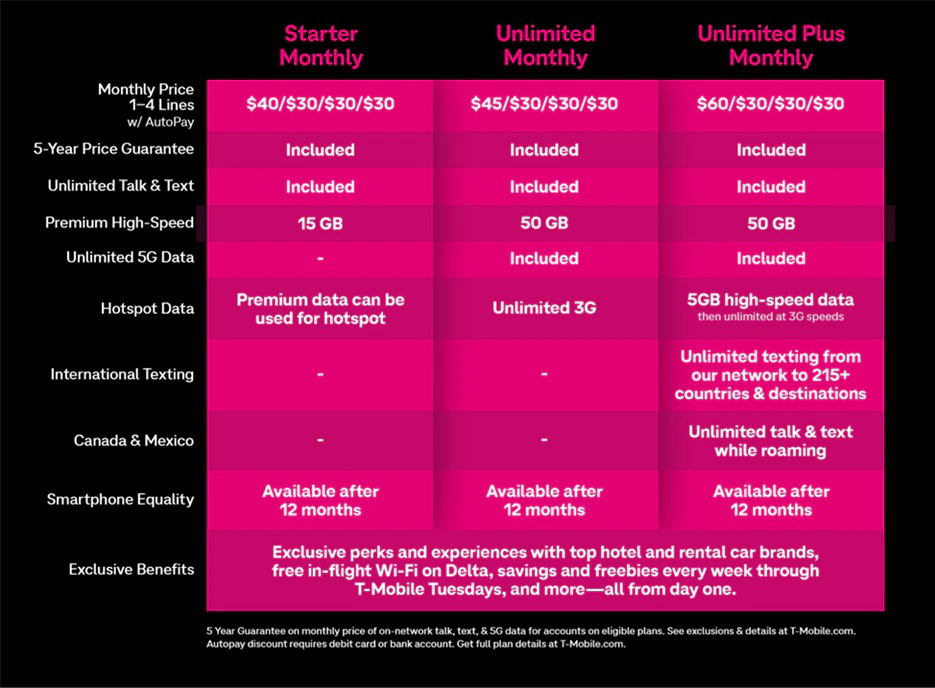
Anything else new? The updated plans all come with the same 5-year guarantee extended to T-Mobile’s postpaid and Metro by T-Mobile customers. T-Mobile is even taking a page out of another rival’s playbook by offering a way to upgrade to postpaid, similar to the AT&T Level Up prepaid plan. Dubbed Smartphone Equality, the new feature allows T-Mobile prepaid customers to upgrade to the best T-Mobile postpaid deals after 12 months of on-time payments, with no credit check required.
None of these things sound bad at all, right? They might not be, but there are a few potential catches worth noting. First, the exact details of the family discounts remain unclear. The provided information suggests you’ll pay just $30 per month per line for two or more lines across all three plans, which seems suspiciously good unless it’s either a limited-time promotion or there’s some other catch that’s not easily apparent.
Even setting aside the seemingly generous multi-line discounts, the overall pricing appears quite low, which raises questions about potential compromises — particularly regarding data priority levels.
Currently, T-Mobile Prepaid plans offer a higher data priority level compared to most other prepaid services on its network. It’s plausible that T-Mobile has quietly reduced this priority to align more closely with Metro by T-Mobile and other value-based options. Such a reduction would explain the lowered pricing, and T-Mobile has a history of subtly introducing such changes. After all, the company initially downplayed that its Experience plans did not include taxes.
Another possibility is that the initial 50GB of high-speed data maintains a higher priority, after which users experience a lower-tier priority. If true, this approach wouldn’t significantly differ from its previous prepaid plans.
Bottom line: The updated prepaid plans appear promising, but I’d definitely do my homework before jumping in, as there are still a few unknowns here. I’ve reached out to T-Mobile for clarification on its prioritization levels, though companies generally remain tight-lipped about QCI levels, so it’s very likely I won’t get a direct answer here.
If priority has indeed been reduced, the value proposition diminishes somewhat, though these plans would still align well with many other T-Mobile-based prepaid competitors.
